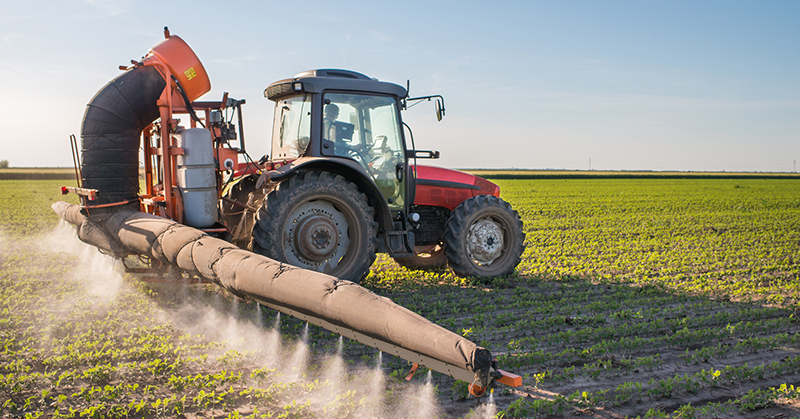Parkinson’s Disease remains a mystery, even in this golden age of science.
Sure, we know contributing factors like genetics, diet, exercise, and other lifestyle factors all play a role in the development of the disease, but researchers still aren’t sure of the exact difference between people who get the disease and those who doesn’t.
Now, they may have just found a clue…
A new study shows that folks exposed to certain chemicals – including common weedkillers –are more likely to develop this life-changing disease.
Here’s how to stay safe….
Pesticides have been linked to all kinds of diseases. Studies show that these chemicals are tied to leukemia, lymphoma, and other forms of cancer, as well as reproductive issues like birth defects and sterility.1
Now, Parkinson’s can be added to that list.
The Pesticide-Parkinson’s Connection
For the new study, researchers analyzed the health data of nearly 1,700 participants, looking for a link between their individual pesticide exposures over time.
The analysis included 722 pesticides, all used in California over the past 40 years. At the end of the research, the scientists found that folks who developed Parkinson’s disease were more likely to live or work near an agricultural area, meaning they had a higher level of exposure to pesticides.
After investigating further, they pinpointed 53 pesticides that seem to be linked to the disease. These specific chemicals were also two to three times more likely to contaminate groundwater.
The Big Ten for Brain Damage
Next, the scientists tested 39 pesticides to learn more about their impact on the development of Parkinson’s disease. They started by identifying the poisons on brain cells taken from Parkinson’s patients after death.
And what they found was shocking…
Ten of these chemicals caused significant brain cell death, including:
- Diquat
- Endothall
- Trifluralin
- Copper sulfate basic
- Copper sulfate pentahydrate
- Folpet
- Dicofol
- Endosulfan
- Naled
- Propargite
These pesticides are used in different ways and include insecticides, herbicides, and fungicides.
And here’s the really bad news…
Eight of these chemicals are still approved for use by the United States Environmental Protection Agency (EPA).2
Yikes!
This means living or working near agricultural areas can increase your risk of developing Parkinson’s disease… and the EPA isn’t doing anything to stop it!
How To Curb Your Pesticide Intake
Living away from agricultural centers won’t necessarily keep you safe from these chemicals.
The modern food supply relies heavily on these chemicals to farm produce. This means the fruits, vegetables, and grains you get from the grocery store can also be contaminated.
The best way to avoid pesticides in your food is to buy organic foods, which are farmed without pesticides.
However, they can be pricey.
One way to rid conventionally grown produce of pesticides is with a baking soda soak.
A 2017 study shows that soaking apples in a baking soda and water solution for 15 minutes completely removed the pesticides from the fruit!3
How simple is that?!
The College of Naturopathic Medicine recommends using one tsp of baking soda to two cups of water.
Just imagine all the money – and brain cells – you’ll save with this easy hack!
Best Regards,
The Awakening From Alzheimer’s Team
1 https://www.pesticidereform.org/pesticides-human-health/







